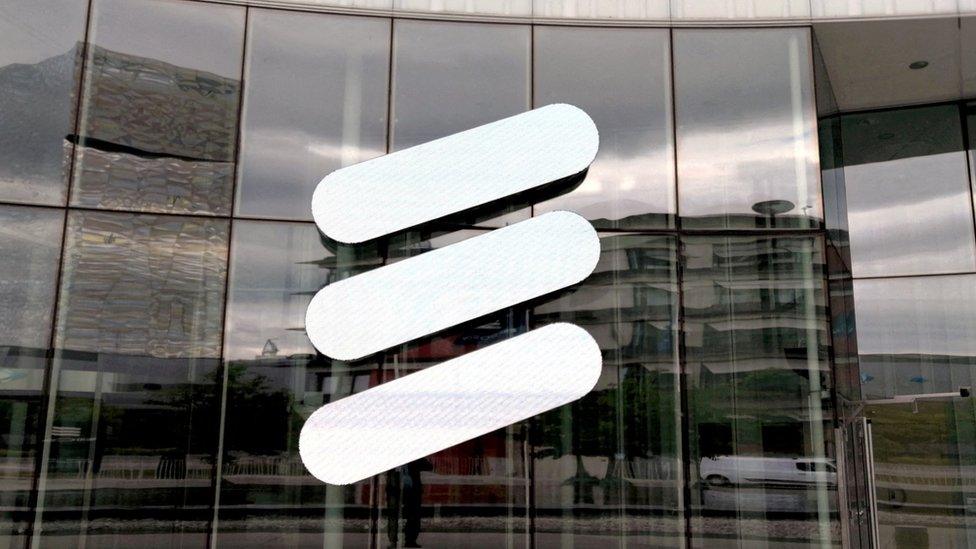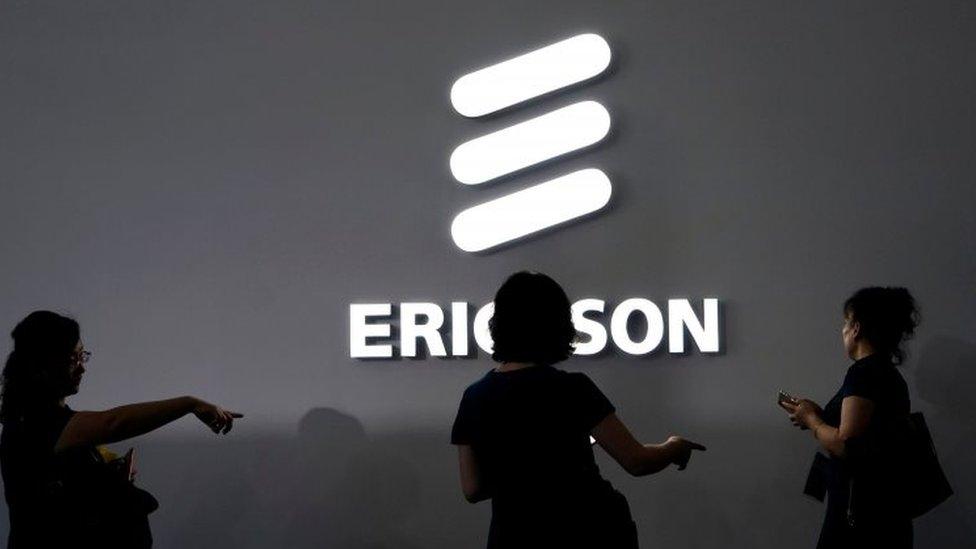Ericsson breached US deal over Iraq corruption probe
- Published

Ericsson's chief executive said "the question on financing armed factions cannot be substantiated"
Ericsson has been told it breached a deal with US prosecutors by withholding information about possible payments to the Islamic State (IS) group in Iraq.
The Swedish telecoms company said the US Department of Justice had concluded that its disclosure about an internal investigation was "insufficient".
It comes after the BBC reported that the inquiry found the firm had insisted on contractors working in IS territory.
This had resulted in a number of them being kidnapped by IS, the probe said.
Ericsson's chief executive Börje Ekholm declined to comment on his discussions with US authorities about the breach, but insisted that "the question on financing armed factions cannot be substantiated".
Shares in the company were down 10% following Wednesday's announcement.
In 2019, Ericsson agreed to pay more than $1bn (£750m) of penalties, external and enter a deferred prosecution agreement following allegations of widespread corruption in five countries - Djibouti, China, Vietnam, Indonesia and Kuwait.
As part of the agreement, the company agreed to continue to co-operate with US authorities in any ongoing investigations and prosecutions.
Last month, Mr Ekholm admitted an internal investigation into the activities of Ericsson employees, vendors and suppliers in Iraq between 2011 and 2019 had found evidence of "corruption-related misconduct".
It also "identified payments to intermediaries and the use of alternate transport routes in connection with circumventing Iraqi Customs, at a time when terrorist organisations, including [IS], controlled some transport routes", the company said. "Investigators could not determine the ultimate recipients of these payments," it added.
The admission came after Ericsson received queries about a copy of the internal inquiry's report that was obtained by the International Consortium of International Journalists and shared with the BBC News Arabic and 29 other media partners.
Ali Hussein Kadhim explains how he "miraculously" escaped the massacre that killed up to 1,700 military cadets in Tikrit in Iraq
According to the report, when the IS group overran much of northern and western Iraq in June 2014, a senior Ericsson lawyer recommended shutting down operations. However, senior managers felt this was "premature" and would "destroy" Ericsson's business in the country, the document says.
The investigators found the insistence that contractors continued to work in IS-held territory put lives at risk because IS militants subsequently took them hostage.
On Wednesday, Ericsson said the US Department of Justice (DOJ) had "determined that the company breached the deferred prosecution agreement (DPA), external by failing to make subsequent disclosure related to the investigation post-DPA".
The firm added that it was "in communication with the DOJ regarding the facts and circumstances of the breach determination and is committed to co-operating with the DOJ to resolve the matter.
"At this stage it is premature to predict the outcome of this matter."
It also stressed that "the investigation could not identify that any Ericsson employee was directly involved in financing terrorist organisations" in Iraq, and that it did not believe the reports by the BBC and other news outlets changed that conclusion.
Related topics
- Published7 December 2019

- Published27 February 2022
